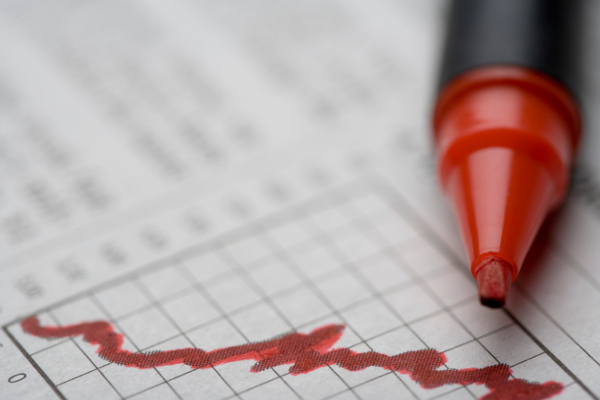Just a handful of companies are responsible for the FTSE 100’s dividend yield, putting income investors at further risk
The concentration of dividend payments among UK listed companies has long been a potential source of ris…
16th April 2020 13:03
by Tom Bailey from interactive investor
Share on
The concentration of dividend payments among UK listed companies has long been a potential source of risk.

Dividend concentration among UK FTSE 100 companies is set to worsen, following a slew of dividend cuts.
In total 32 companies in the FTSE 100 have announced either a cut, suspension, or deferment of their dividend payment. The cuts have come from companies in various industries, but most notable of all has been banks given the sector has historically been a big income payer.
According to Russ Mould, investment director at AJ Bell, the aggregate consensus forecasts for the FTSE 100 is that roughly 60 member companies will pay out around £64 billion in 2020, down from £85 billion in 2018 and £75 billion in 2019. Based on the £64 billion figure the FTSE 100 has a yield of 4.1%.
However, just a handful of companies will be responsible for the bulk of those payments. According to data from AJ Bell, just 10 firms are forecast to be responsible for £42 billion in dividend payments in 2020, equalling 66% all payments.
Alternatively, the top 15 payers are forecast to pay a total of £49 billion, which would equal 76% of the expected £64 billion in payments. Meanwhile, the top 20 payers account for 84% of the whole index.
This reliance on just a few big names for the index’s income potentially puts investors at risk, especially when the dividend cover of many of the firms looks notably thin. Mould notes: “Investors therefore need to be sure about these 10, 15 or 20 names above all others, especially as earnings cover among the top 10 does not come too close to the 2x mark that offers some comfort during times of economic uncertainty.
“At the end of February, 46 FTSE 100 members offered estimated earnings cover of 2.00 or more for their forecast dividend in 2020. If you now assume none of the payment withholders for late 2019 or early 2020 offers any sort of dividend in 2020 that figure drops to just 25.”
The concentration of dividend payments among UK listed companies has long been a potential source of risk. As fund manager Robin Geffen noted in December, at the time, just 10 stocks accounting for 50% of the FTSE All Share index’s yield. “The payout ratio is the highest I can remember in my lifetime,” said Geffen, who manages the Liontrust Income fund. He warned a high proportion of dividends did not look sustainable.
Top 20 paying companies in the FTSE 100
| Dividend (£ million) | Dividend as % FTSE total | Dividend yield (%) | Dividend cover (x) | ||
|---|---|---|---|---|---|
| 1 | Royal Dutch Shell | 11,906 | 18.6% | 10.6% | 0.64x |
| 2 | BP | 6,647 | 10.4% | 10.2% | 0.54x |
| 3 | British American Tobacco | 5,087 | 7.9% | 7.6% | 1.53x |
| 4 | GlaxoSmithKline | 4,014 | 6.3% | 5.1% | 1.43x |
| 5 | Rio Tinto | 3,168 | 4.9% | 6.6% | 1.62x |
| 6 | AstraZeneca | 2,939 | 4.6% | 2.9% | 1.46x |
| 7 | Vodafone | 2,369 | 3.7% | 7.3% | 1.04x |
| 8 | BHP Group | 2,102 | 3.3% | 7.6% | 1.54x |
| 9 | Imperial Brands | 1,964 | 3.1% | 12.8% | 1.26x |
| 10 | Diageo | 1,818 | 2.8% | 2.7% | 1.76x |
| 11 | Unilever | 1,799 | 2.8% | 3.7% | 1.52x |
| 12 | National Grid | 1,758 | 2.7% | 5.6% | 1.22x |
| 13 | Reckitt Benckiser | 1,286 | 2.0% | 2.7% | 1.68x |
| 14 | Legal and General | 1,118 | 1.7% | 8.9% | 1.76x |
| 15 | Anglo American | 1,053 | 1.6% | 5.4% | 2.49x |
| 16 | BT | 997 | 1.6% | 8.1% | 2.23x |
| 17 | Prudential | 954 | 1.5% | 3.6% | 3.97x |
| 18 | Tesco | 902 | 1.4% | 3.9% | 2.00x |
| 19 | RELX | 883 | 1.4% | 2.6% | 2.08x |
| 20 | SSE | 860 | 1.3% | 6.7% | 1.22x |
Source: Sharecast, consensus analysts’ forecasts, Refinitiv data
This article was originally published in our sister magazine Money Observer, which ceased publication in August 2020.
These articles are provided for information purposes only. Occasionally, an opinion about whether to buy or sell a specific investment may be provided by third parties. The content is not intended to be a personal recommendation to buy or sell any financial instrument or product, or to adopt any investment strategy as it is not provided based on an assessment of your investing knowledge and experience, your financial situation or your investment objectives. The value of your investments, and the income derived from them, may go down as well as up. You may not get back all the money that you invest. The investments referred to in this article may not be suitable for all investors, and if in doubt, an investor should seek advice from a qualified investment adviser.
Full performance can be found on the company or index summary page on the interactive investor website. Simply click on the company's or index name highlighted in the article.